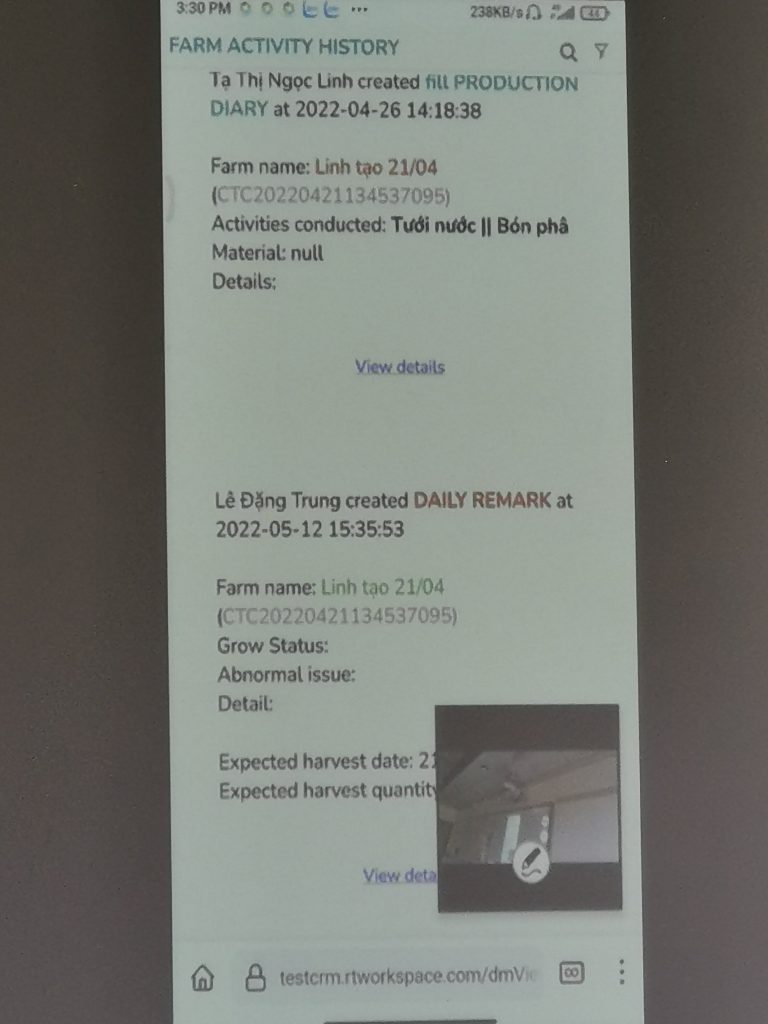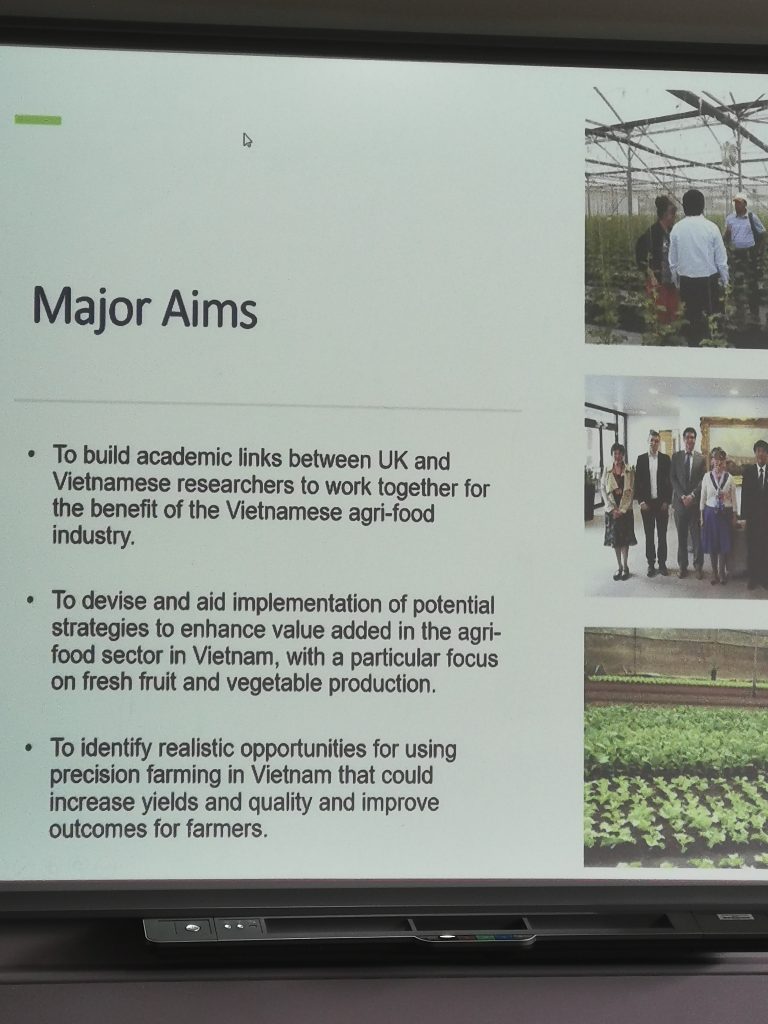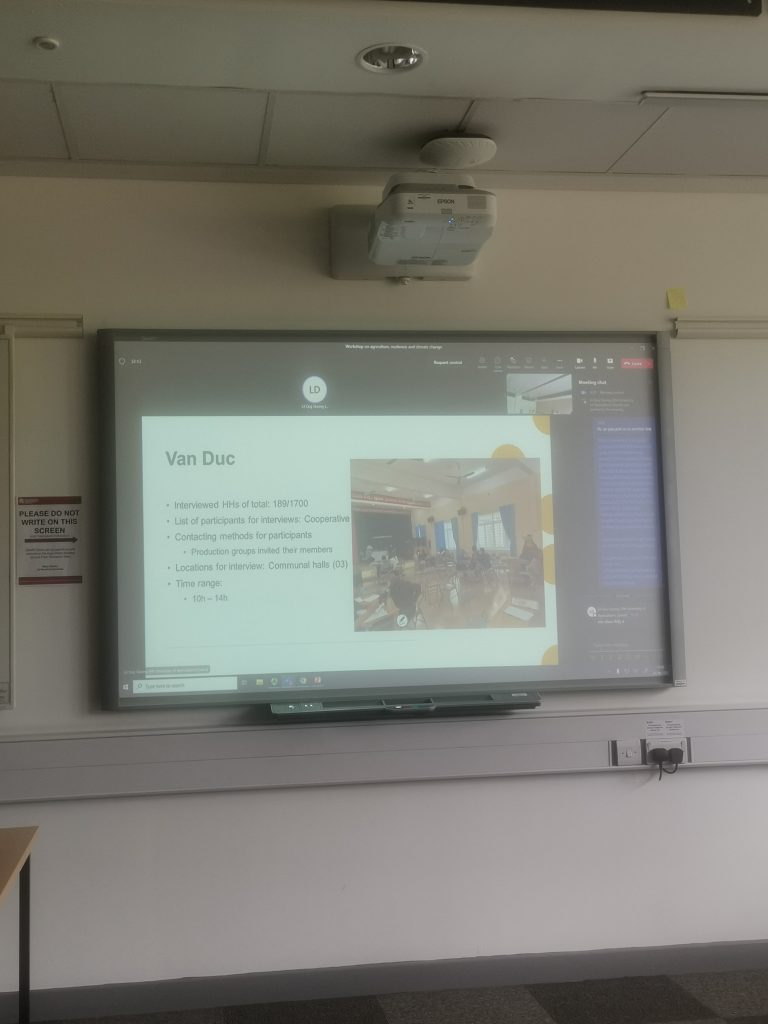On June 8th 2022, De Montfort University and the Institute for Applied Economics and Social Value organized a workshop that focused on the problem of food security, and the resilience of the food supply chain amid climate change. Starting the workshop, Dr Dang-Trung Le, the director of Real-Time Analytics presented the RTSurvey, a web-based platform that allows us to collect data seamlessly from farmers in rural Vietnam. This app is a smart way to acquire information regarding the food supply chain, especially in rural areas. Not only it reduces massively the collection and processing costs of a survey, but it also increases the reliability of the data. The app interested a number of attendees, including Dr. Carmen Hubbard from Newcastle University. She continued the workshop by presenting her collaborative work with colleagues from Newcastle University and the University of Economics in Hochiminh City. Being a project that involved a large multi-disciplinary team, it showed the enormous opportunities to increase the yields, both quantity and quality, of farmers in Vietnam. Dr Hubbard also presented several challenges to the project, one of which was the small size of the farmers in Vietnam. This problem made monitoring and supporting these farmers much more challenging. We had a lively debate on how modern technology such as RTSurvey could be brought into the potential strategies to enhance the outcomes of the farmers.
Dr Quy-Duong Le from the Vietnam National University of Agriculture then presented how he and his team conducted a survey in the villages surrounding Hanoi, the capital of Vietnam. Despite working on a limited budget, the team managed to survey 500 households and more than 100 collectors/traders. Additional challenges including the interpretation of the questions to the farmers who were not familiar with such research were also presented. Good lessons were drawn from these challenges when conducting research in developing countries such as the case in Vietnam.
Moving from Vietnam to other countries, Professor Bhavani Shankar from the University of Sheffield discussed how challenging it has been to establish a climate-resilient market for nutrient-dense food. For instance, in India when the temperature is rising due to climate change, foods are quickly perishing. Small and low-income farmers cannot afford to have cooling systems to preserve the quality of their products before they reach the markets. Segun Fadare, a PhD candidate from the University of Reading presented the effects of conflicts on livestock in Nigeria. These conflicts, which were rising in recent years, had huge implications for nutrition and health in the country. Dr Godwin Okafor from De Montfort University then concluded the lively and productive workshop by presenting his work with a comprehensive dataset on the various types of conflicts in Nigeria that affected the outcomes of the food industry.
As organizers of the workshop, we thanked all the presenters and audience that contributed to the success of the workshop. We expect more to come from these inspiring and interesting projects which help us to understand the situation of food security in the world and develop the solutions to this increasingly worrying problem.



A survey was conducted in the 3 villages nearby Hanoi.
About the author